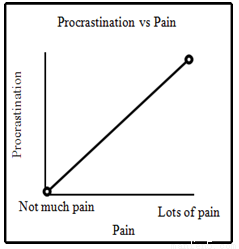题目内容
The Pathfinder
When we found him, he was a sorry sight. His clothes were torn, his hands bleeding. Before we reached him, we saw him fall. He lay a moment. Then he pulled himself to his feet, walked unsteadily a few yards through the woods and fell again.
After we got him out, we went back to find the gun that he had thrown down. His tracks showed that for two days he had circled in the forest, within 200 yards of the road. His senses were so dulled by fear and tiredness that he did not hear the cars going by or see the lights at night.
We found him just in time.
This man, like others before him, had simply been frightened when he knew he was lost. What had been a near disaster might have turned out as only a pleasant walk, had he made a few preparations before he stepped from the highway or off a known path.
Whatever sense of direction that a man may have, it’s still largely a question of observation. A skilled woodsman always keeps an eye on his surroundings. He notes that the shape of a mountain, the direction water flows through a swamp, and the way a tree leans across a path. With these in mind, he may be turned around many times, but he is seldom lost.
There are exceptions, of course, and once in a while a man does come across some strange problem that puts him into the “lost” situation. A rainstorm or sudden blizzard may catch him without a compass (指南针) in his pocket. Darkness may find him in a rough area, where travel is dangerous without a light.
When this happens, the normal first reaction (反应) is the fear of being laughed at as a result of his poor knowledge in the woods. He may also be concerned about the inconvenience that he will cause his friends when he doesn’t show up. This false pride may lead him to keep on the move in a false effort to find his way against all difficulties.
The person who thinks ahead is seldom in great danger. He’ll be safe if he observes carefully, thinks ahead, and remains calm.
1.The author suggested that if the man had not been found, he would have ________.
A. been shot by a gunB. become confused
C. been attacked by wild animalsD. been in great danger
2.According to the passage, if a person gets lost in the forest, at the very beginning, he would _______.
A. worry about being laughed at
B. push himself to find his way out
C. feel it is convenient to ask for help from his friends
D. be concerned about being frightened by wild animals
3.When a person tries to find his way in the woods, _________ is the most important.
A. intelligenceB. observation
C. directionD. chance
4.The author tells the story of the lost man as an example of people who _________.
A. go into the woods by themselves
B. don’t know how to signal for help properly
C. are frightened when they think they are lost
D. notice everything when stepping from the highway
 阅读快车系列答案
阅读快车系列答案

